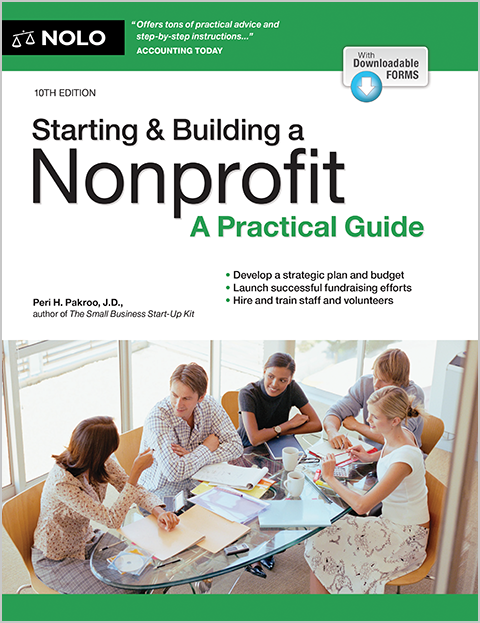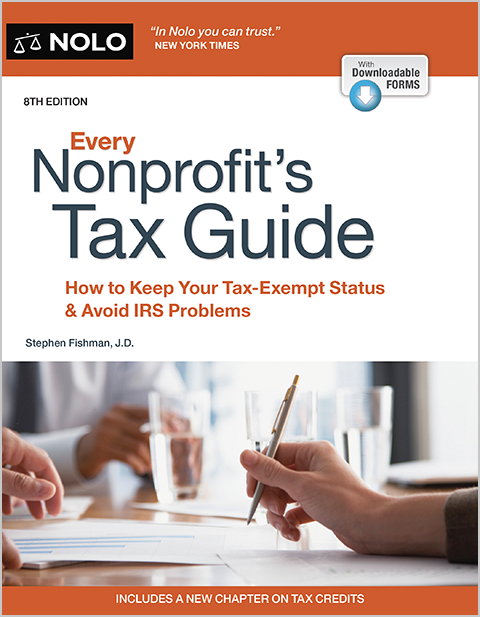If a donor's will creates bizarre or impossible conditions, can you still accept or keep the gift?
Ideally, when donors leave your nonprofit organization a gift of money or property via their will, they'll keep it simple. Most wills will say something like, "I leave $X to the nonprofit organization known as [group's name], located at [address], to be used for its ongoing programs and general purposes."
However, donors contemplating their last acts on this earth often wish to exert a bit more control, for instance to name a particular program or use. Here, we'll examine how far they can take this, and how to head off gifts that wouldn't be worth the effort.
Where Does This Donor Urge For Control Stem From?
In some cases, the choice to leave a restricted gift reflects natural worry. Donors might think that not limiting a gift's purposes will lead your organization to squander it. (Champagne at the next board meeting, perhaps?) Such worry is largely misplaced, because even an unrestricted gift must, by law, be put toward purposes that your organization believes to be appropriate within its mission.
In other cases, the donor might really have a specific idea about how the money should be spent, such as to expand a certain program or improve your physical facilities. Or, if they're leaving physical property, they might wish to assure that it won't be stowed away in some closet. That's presumably why, for example, Philadelphia physician Florence Chapman Child conditioned her 1957 legacy gift of $50,000 to Bryn Mawr College on an agreement that the school take care of her 150-year-old grandfather clock, meaning "install it in an appropriate place, keep it in proper condition and repair, make no changes in the fundamental appearance, and ... not ... have it electrified."
Some donors even dangle bequest money as leverage to achieve some broader goal. A $3 million bequest left to Swarthmore College in 1907 met this description: It was conditioned on the school ceasing all participation in intercollegiate sports. (Though tempted by the much-needed funds, Swarthmore turned the gift down.)
What does all this mean for your nonprofit organization?
Try to Nip Restricted Charitable Gifts in the Bud
First, you'll want to head off restricted gifts by assuring potential legacy donors in all your communications, such as newsletters, on social media and your website, or in direct appeals, that you have a specific and honorable plan for using all legacy gifts.
For an organization with a long history and vital, ongoing programs, this can be as simple as explaining the important role that bequests play in keeping your programs going. Other organizations point to more concrete legacy opportunities, such as planting a tree in the donor's honor. Still others create a "legacy fund" that's designated to meet the organization's greatest needs.
Recognizing past legacy donors and highlighting how their gifts were used is also a good way of reassuring future donors. This makes good story material in your newsletter and on your website and social networking pages.
You can supply donors with suggested language for use in their will (again, in your newsletters, on your website, or in other communications regarding legacy giving).
If a donor comes to you personally with questions or concerns, that gives you a chance to explain that while you'll do everything possible to respect their wishes, many years will hopefully pass before the gift is actualized, and binding your organization to something that might no longer be important won't honor either your organization's needs or the donor's intentions. You could suggest to the donor that their will be accompanied by a letter to your board of directors expressing the details of their wishes regarding how the gift be used.
If the donor still wishes to dictate in the will that the gift be used for a specific purpose, you could mention the possibility of them adding a sentence like "If the gift cannot be used for these intended purposes, it may be put toward such purposes as the Board of Directors decides."
Don't Accept a Gift Containing Terms Your Organization Can't Meet
Turning down a gift can obviously be a tough decision, especially when your organization could no doubt use every possible infusion of funds. Realize, however, that your organization is legally bound to respect donors' wishes when accepting (or later handling) a legacy gift.
If it's clear from the outset that you won't be able to abide by the gift's terms, perhaps because that would be impractical, unethical, or would require you to perform an illegal act such as discriminating among clients, then you should simply reject the gift. (It will go back to the donor's estate, to be distributed to any contingent beneficiaries.)
Some organizations create and publicize a gift acceptance policy, so donors considering restricted gifts are warned ahead of time that their gift might not be accepted.
Deal Cautiously With Restricted Gifts Once They're Made
If you decide to accept a gift with restrictions, you'll need to start by looking the donation over carefully so that you understand what's required. Note and track the donated income within your accounting records, keeping tabs on how the money is ultimately spent. If funds were left to you in trust (for example, with a certain amount to be made available to you every year) this will be a longstanding obligation.
And, of course, you'll need to follow the restrictions, whether it means using the money only for your clients located in a certain county or bringing out the chair containing the donor's embalmed body at every board meeting. (That's not a sick joke; it was a condition of Jeremy Bentham's bequest to University College London.)
If, over time, you find that carrying out a donor's wishes in connection with a charitable trust becomes impracticable, impossible, or even illegal, and wouldn't match the donor's originally charitable intentions, your hands aren't completely tied. In most states, you can ask a court for approval of a modification to the gift's terms. The courts apply a principle known as "cy pres," under which the modification must be as near as possible to what the donor originally intended.
For example, in a 2007 case in Iowa, the trustees of the Kolb family charitable trust (established and used to create a formal flower garden in a city park in memory of a deceased family member) sued the city over its plans to move the park. The court found, however, that the city's development plans made keeping the park in that particular spot impossible and that another location within the park would do. (The case is called Kolb v. City of Storm Lake.)
For More Information
For help with any decision or action to modify your use of a charitable gift, see an attorney. For more tips on fundraising, including information on soliciting unrestricted legacy gifts for your nonprofit, see Effective Fundraising for Nonprofits, by Ilona Bray (Nolo).



